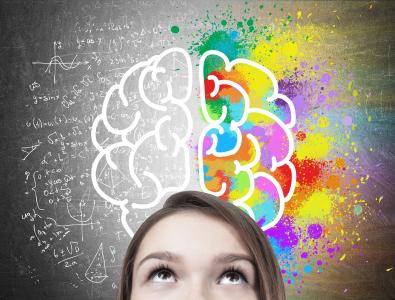Facts and Tips About the Teen Brain

5 Facts about Teen Brains
1. Teen brains continue to develop until their mid-20's.
- When teens are calm, they have the ability to problem solve almost as well as adults.
- The changes that occur between puberty and the mid-20's create a period of intense learning about who we are and who we want to be.
- Drugs, alcohol, and excess stress are particularly harmful to growing brains.
2. Different parts of teen brains grow at different rates.
- The entire teen brain is growing rapidly.
- Teen emotions are close to the surface because their brains are wired to experience feelings. The intense emotions are a sign of brain growth.
3. Teen brains are flexible.
- Teen are searching for new experiences and knowledgeable. The helps generate more efficient connections in the brain that can lead to new ways of thinking, creative ideas, and opinions about the world.
- Adolescence is a time of opportunity. Teens gain thinking and reasoning, social, and emotional skills, and begin to figure out their interests, goals, and who they are as people.
4. The "feel good" chemical dopamine is highly active in teen brains and rewards new experiences.
- All teens must test limits to maximize learning and brain development.
- The highly active reward centers in the brain push teens towards seeking new and exciting experiences.
5. Learning doesn't just happen at school.
- Teens learn at a fast pace. They need plenty of opportunities to learn.
- Teens are #superlearners! Their brains are rapidly taking in information that will last a lifetime.
- The teen brain is wired to absorb experience at a fast clip. Brain growth is shaped by the lessons offered at home, by friends and community role models, and in school.
5 Tips for Parents
1. Avoid the Lecture
Why?
- Lectures are usually given when emotions are running high...and teen brains react to emotions first and explanations SECOND. Teens will perceive anger and disappointment during a lecture, which can stress them out more. A stressed out brain cannot process information properly.
2. Guide Decision-Making
Why?
- The "reasoning center" of the teen brain develops more slowly than the "emotional center". Parents can guide their teens ability to make good choices by helping them learn not to make important decisions when emotional.
- Also, peers can activate the "reward center" of the brain - so encourage your teens to have space from friends before making big decisions.
3. Have Calm Discussions
Why?
- Brains work better under calm conditions. Unless safety is a concern, parents should take time to calm themselves so they can have calm discussions with their teens. Model how to make decisions AFTER you've had a chance to cool off.
4. Support Exploration with Safe Boundaries
Why?
- Teen brains are WIRED to seek out new experiences. This is how people gain life-long knowledge.
- Young people need to test limits and stretch boundaries as they learn to become more independent. They also need boundaries to stay safe and in alignment with personal values.
- Taking HEALTHY RISKS allows the brain to grow. Provide plenty of opportunities for teens to try new things that are both exciting AND safe.
- Let your teen fail. It's part of the learning experience. With each effort, they will learn how to get back up, grow stronger, wiser and more creative.
5. Create a Healthy Environment for Brain Development
Why?
- Encourage teens to eat a well-balanced diet, exercise for at least 20 minutes a day, and get 8-10 hours of sleep. These conditions are ideal for growing brains and mental/physical development.
- Continued high levels of stress can be damaging to the brain's emotional and physical development. Adult support is important.
- Alcohol and drugs offer temporary escapes from stress, but can be destructive to health brain development. Guide teens towards healthy COPING STRATEGIES by modelling them yourself and letting them know healthy choices can make them feel better.
- When parents MODEL behaviors, teens are more likely to pick them up.
Source:
Center for Parent and Teen Communication - https://parentandteen.com/
